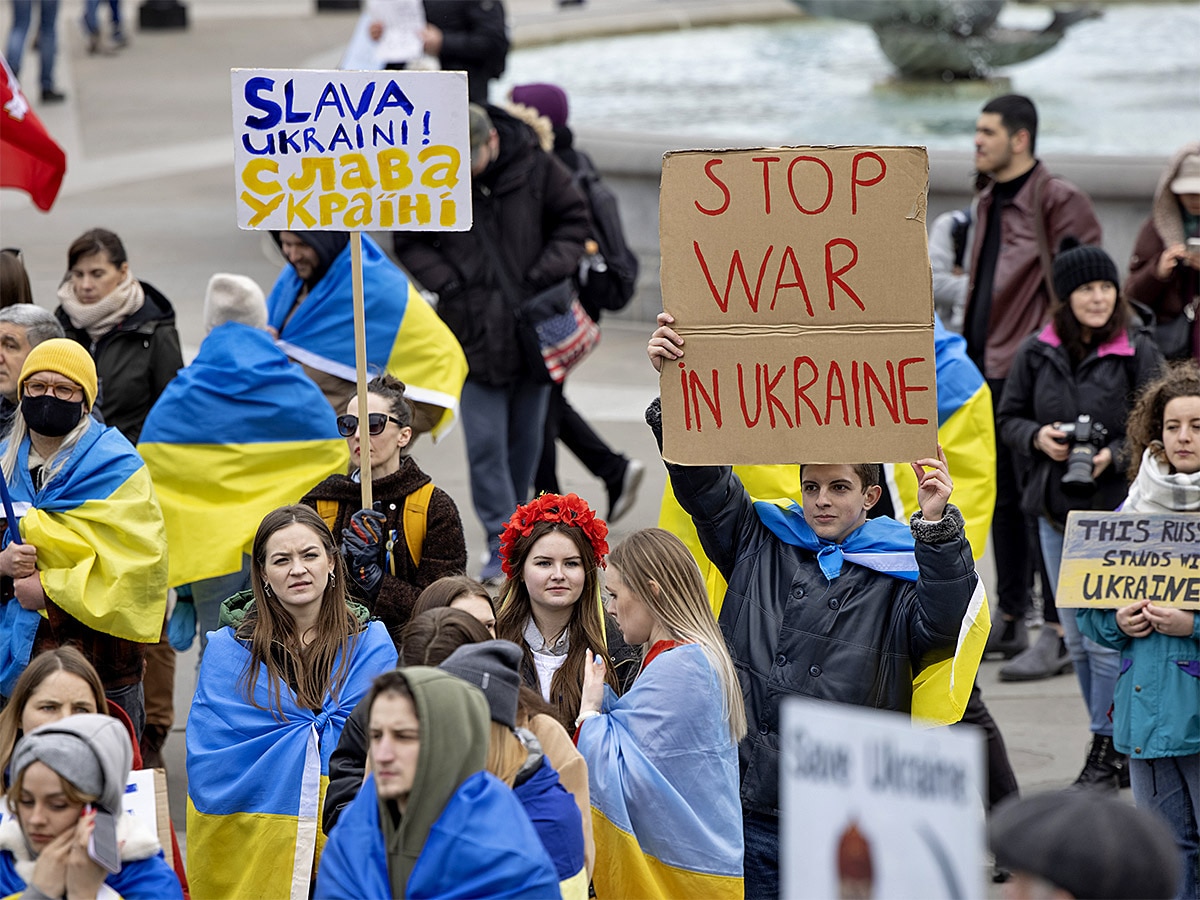War always makes investors nervous and stock markets volatile. While stocks in some sectors, such as defence and energy production, do well, others, such as commercial aircraft engineering, can be hit.
As the Russia-Ukraine war enters its second month, events unfolding are having major implications for markets around the world.
While the conflict should not be seen as an opportunity to exploit market weakness, there are ways to safely navigate the crisis and manage exposure to investment risk.
With this in mind, there are a few sectors and stocks that have been performing well since the conflict began, and should continue to do so. These include defence, energy and commodities such as food.
Defence stocks climb as spending rises
Unsurprisingly, the conflict has seen a significant rise in defence spending around the world. The US is currently accelerating production of Javelin and Stinger missiles. The main contractor is Raytheon Technologies [RTX].
On its fourth quarter 2021 earnings call in January, Raytheon’s CEO Greg Hayes indicated that the company could stand to profit from the Russia-Ukraine war and other geopolitical conflicts: “[W]e are seeing, I would say, opportunities for international sales.”
Hayes’ comments drew criticism, but in an interview with Harvard Business Review in March, he doubled down: “Look, we don’t apologise for making these systems, making these weapons. The fact is, they are incredibly effective in deterring and dealing with the threat that the Ukrainians are seeing today.”
The Raytheon share price is up 16% year-to-date and closed on Monday 4 April a few percentage points down from its 52-week high of $104.34 set on 1 March.
The Lockheed Martin [LMT] share price was up 25.8% year-to-date as of 4 April, but the stocks of defence contractors Boeing [BA] and Airbus [AIR.PA] are down 5% and 2%, respectively, over the same period. This is largely due to their exposure to the commercial aviation industry. It’s been reported that Russia had 62 aircraft on order from the companies, which are now unable to be delivered.
European energy stocks benefit from shift away from Russian supply
As Europe tries to wean itself off Russian oil, many European energy stocks have made gains.
Électricité de France [EDF.EPA] may be down 17.7% since the start of 2022 at the close on 4 April, but it’s up 6.9% in the past month and 16.9% above its 52-week low set on 7 March.
The share price of Danish power company Ørsted [ORSTED.CPH] was up 9% in the past month as of 4 April, although down 0.7% since 1 January. It has climbed 24.7% since setting a 52-week low on 24 February.
The conflict has also crystalised the need for the UK, EU and US to rely on alternative energy sources. This could benefit nuclear stocks, in particular.
Schroders portfolio manager Isabella Hervey-Bathurst wrote in a blog that the crisis could result in a shortfall in gas, which may result in coal-powered generators being restarted in some countries. “However,” she said, “this should not be taken to mean that the energy transition has been sidelined: far from it… This crisis has created an additional impetus to move to a future free of fossil fuels more quickly.”
Food and agricultural prices soar
The crisis has had a significant impact on foodstuffs, especially wheat. According to Reuters, Ukraine and Russia account for 29% of global wheat exports, while the former accounts for 13% of global corn exports. With Ukraine’s ports closed and agriculture supplies from Russia constrained, there has been a scramble to get hold of wheat elsewhere to cover a potential shortfall.
The situation has sparked a significant price rise in wheat and other commodities, including corn and sunflower oil. Companies that have lower exposure to the crisis are likely to fare better. Take German pharmaceutical and agrochemical giant Bayer [BAYN.DE]. At the close on 4 April, its share price had climbed 21.4% in the past month to its highest level since June 2020. Any investor fears may be eased by the fact that Russian sales reportedly make up just 2% of total revenue.
The rising cost of oil has also been a boon for fertiliser stocks. Farmers rely on fertilisers derived from only a few natural resources: natural gas, potash and phosphate. As of 4 April Intrepid Potash [IPI] was up 32.4% in the past month, while Nutrien [NTR] was up 15.2% over the same period.
Disclaimer Past performance is not a reliable indicator of future results.
CMC Markets is an execution-only service provider. The material (whether or not it states any opinions) is for general information purposes only, and does not take into account your personal circumstances or objectives. Nothing in this material is (or should be considered to be) financial, investment or other advice on which reliance should be placed. No opinion given in the material constitutes a recommendation by CMC Markets or the author that any particular investment, security, transaction or investment strategy is suitable for any specific person.
The material has not been prepared in accordance with legal requirements designed to promote the independence of investment research. Although we are not specifically prevented from dealing before providing this material, we do not seek to take advantage of the material prior to its dissemination.
CMC Markets does not endorse or offer opinion on the trading strategies used by the author. Their trading strategies do not guarantee any return and CMC Markets shall not be held responsible for any loss that you may incur, either directly or indirectly, arising from any investment based on any information contained herein.
*Tax treatment depends on individual circumstances and can change or may differ in a jurisdiction other than the UK.
Continue reading for FREE
- Includes free newsletter updates, unsubscribe anytime. Privacy policy





